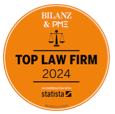Switzerland Launches Public Consultation on Procedural Aspects of OECD's Pillar Two Minimum Corporate Tax

The Swiss Federal Council initiated the second round of public consultation on May 24, 2023, regarding the temporary regulation of the OECD Pillar Two minimum corporate tax in Switzerland during a transitional phase. The updated section of the regulation encompasses the tax obligation (one-stop-shop), the shared liability of Swiss constituent entities (CEs), and various procedural and criminal tax law considerations.
The commentary accompanying the regulation confirms the inclusion of transitional Country-by-Country Reporting (CbCR) safe harbor rules and the delayed implementation of the Undertaxed Profits Rule (UTPR) in Switzerland. The latter will not be introduced before January 1, 2025, aligning with the European Union's timeline.
Interested parties are to provide feedback on the proposed regulation until September 14, 2023. The regulation is expected to come into effect from January 1, 2024.
Switzerland intends to implement Pillar Two of the OECD Base Erosion and Profit Shifting 2.0 project through a series of legislative steps. Firstly, a constitutional amendment will establish the legal framework for the introduction of Pillar Two. This amendment will undergo a public vote scheduled for June 18, 2023.
Following the consultation period, the Swiss Federal Council reviewed the comments received and published them on May 24, 2023. The second version of the draft ordinance, incorporating these comments, is yet to be finalized.
How Pillar Two Is Going to be Implemented in Switzerland?
The latest revisions have established the identification of taxable business units and the process for imposing the top-up tax. To streamline administrative processes, the economically most significant unit within a group of companies will be responsible for paying the tax on behalf of all units in Switzerland within its canton. Afterward, the canton will distribute the revenue from this tax to other cantons.
The top-up tax will be imposed by the cantons using a mixed assessment procedure, similar to corporate income tax. The tax authorities will calculate and assess the tax, while the taxable business entities are required to submit a self-declaration. This declaration and the associated procedure will be conducted electronically through a portal. If any disputes arise regarding the assessment, appeals can be directly filed with the Federal Administrative Court.
Source:
https://www.admin.ch/gov/en/start/documentation/media-releases.msg-id-95379.html





